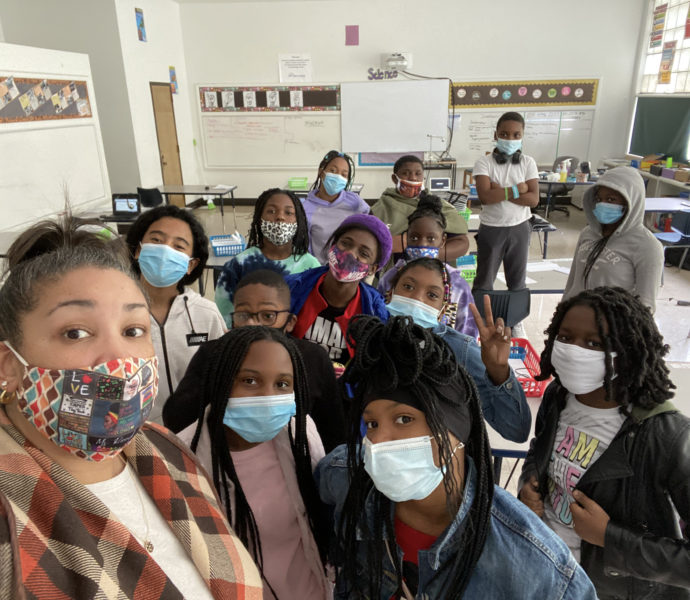What might have been
(Excerpt) Just before 8 a.m., Monica Reed sat atop a desk in the middle of her classroom, ready to lead what she hoped would feel like a family meeting with the 11 sixth-graders before her.
Reed teaches African American culture at KIPP Inspire Academy, a middle school in St. Louis, and she often talks with her students about current events and the history of racism in America. She knew her students, half of whom watched the Chauvin verdict, would be ready to discuss it.
She began by asking how they would have felt if Chauvin had been found not guilty.
“I would honestly feel mad because he did all that and then his family didn’t get justice,” one student shared.
“I would have felt …” another student began. “I would have felt messed up. Because not only are you killing a Black man, and he’s saying he can’t breathe, but still, you got it on video.”
Reed used the student’s point to talk about how cell phone recordings and social media have changed how police are prosecuted. And she told students they could become the next generation of lawmakers who could make changes to how police are held accountable, too.
“What I want you to learn how to do is grow up and not be afraid to say and do what is right,” she told them.
To bring home the magnitude of the guilty verdict, Reed recalled what it was like in their city when Darren Wilson, the police officer who shot and killed Michael Brown in 2014, wasn’t charged with any crimes. She thought it was important to draw on the knowledge her students had about Brown, who faced some of the same challenges as them.
“St. Louis erupted,” Reed told her students, many of whom receive special education support. One nudged her to explain what the word meant. “It means we exploded.”
Then Reed relayed the memory she had of leaving a science field trip early with her students on the day the announcement was made back in 2014, in anticipation of the protests that would break out when no charges were filed. The police station two blocks from their school was set on fire.
“St. Louis will never be the same,” she said. Had Chauvin not been found guilty, “this would have been the same thing.”
Read the full article here.

